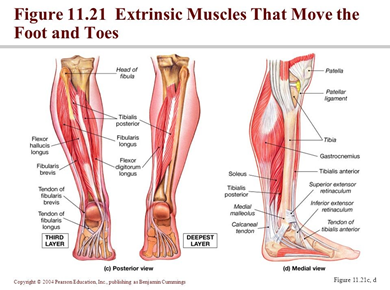Importance of Ankle Strengthening in Ice Skaters
Ice skating boots are the most important equipment for figure skaters. The boots are usually made of multiple layers of leather or other material that make them very stiff. A reader’s experience might be flimsy rental ice skates rather than the boots skating athletes invest in. Skaters choose different stiffness levels based on their skill set. For example, higher skills requiring triple jumps usually require stiffer boots. The stiffness restricts ankle movement in the boot & holds the ankle up. This allows for jump execution but also as a result most skaters have fairly weak ankles. This can cause injuries in the foot including ankle sprains, tendonitis & bursitis or even knee, hip and low back pain.
While skaters must address all the muscles of the foot and ankle, the posterior tibialis is an often an overlooked muscle regarding ankle strengthening or injuries. The posterior tibialis is a key lower leg and ankle stabilizer. It runs from the middle of the lower leg to the inside ankle bone and the arch of the foot. In addition to helping to plantarflex the foot it also turns the foot in and supports its arch. If the posterior tibialis is weak then it can contribute to flat feet or increased foot pain. This can cause difficulty when skating, especially when maintaining edges or landing a jump and thus create unhealthy stress on the ankle. It can also cause pain and joint stress at the foot, knee, or even the hip.
A few simple exercises can be added to an off-ice routine to improve ankle strength, flexibility and stability. These exercises include heel raises & single leg balance activities to target the calf and tibialis posterior.
Twist Physical Therapy specialize in treating skaters. Dr. Sarah Berkshire is one of the coaches for Washington Ice Emeralds Synchronized Ice Skating Adult and Youth Teams. Twist Physical Therapy offers 30 minute FREE PT consults specifically tailored for skaters. Contact us today to schedule or learn more.







